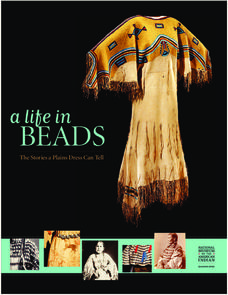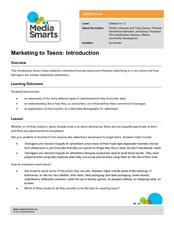Polar Trec
Talk Story: A Native Way of Knowing
The steps of the scientific method examine a problem, make a prediction, and attempt to solve the problem—similar to the path most stories take. In the activity, individuals see how stories can explain natural events similar to the way...
Richmond
Chinese New Year – Reading Comprehension
Traditions surrounding the celebration of the Chinese New Year are the focus of a reading comprehension worksheet designed for intermediate level language learners.
Harper Collins
Amazing Women
Helen Keller became a teacher after her experience with Anne Sullivan, demonstrating to the world how valuable a dedicated mentor and determined spirit can be when overcoming adversity. Middle schoolers learn more about the influential...
Polar Trec
Nature's Density Column
Nature provides density columns in the polar regions that provides food for many animals. Young scientists build their own density columns with water in order to answer analysis questions. Through a slideshow presentation, scholars...
Folger Shakespeare Library
Essential Everyday Bravery
Shakespeare's plays may be old, but they still have relevant lessons for today's world! A collection of lesson plans uses examples from The Merchant of Venice and District Merchants to teach about bravery. In addition to learning...
Equality and Human Rights Commission
Taking Action
The Universal Declaration of Human Rights passed in 1948 when the majority of members of the United Nations voted in favor of the resolution. Scholars use their knowledge of human rights to determine ways they personally can help promote...
Curated OER
What's Missing? Making Room for Multiple Perspectives
Learners identify missing characters from a text, particularly a school text. They increase critical thinking by supplying missing perspectives in a text an build empathy through surveying different points of view. They reflect on the...
Curated OER
Making Inferences
Here is an excellent graphic organizer that learners use to write details and facts in boxes to the left, and inferences about them on the right. A good worksheet for visual learners!
National Museum of the American Indian
The Kwakwaka'Wakw: A Study of a North Pacific Coast People and the Potlatch
Discover the cultural practices and unique value systems of a group of native peoples from Canada called the Kwakwaka'wakw. Your young historians will discuss how conceptions of wealth can vary and how these native...
Smithsonian Institution
A Life in Beads: The Stories a Plains Dress Can Tell
Young learners discover how the Sioux and Assiniboine tribes preserved native culture through the making of traditional dresses, identifying the resources used to make the dresses and discussing behind the meaning behind some...
Curated OER
Marketing to Teens: Introduction
An introductory lesson shows learners how pervasive and influential advertising is in our culture; particularly, how teenagers are actively targeted by advertisers. As teenagers, your young scholars already have all the information they...
Baylor College
Water in Your Body
Do you know how much water you have had in the last 24 hours? Do you know how much your body needs? For this hands-on activity, your class members will estimate how much water our bodies lose each day by filling and emptying one-liter...
Curated OER
Water in Earth's Hydrosphere
Environmentalists test stream water for temperature, pH, and turbidity. Each group shares their information and then the class makes an overall evaluation of the water quality. A slide show sets the backdrop for the teaching portion and...
Smithsonian Institution
Mary Henry: Journal/Diary Writing
A great way to connect social studies with language arts, a resource on Mary Henry's historical diary reinforces the concepts of primary and secondary sources. It comes with an easy-to-understand lesson plan, as well as the reference...
University of Kentucky
The Successful Person's Guide to Time Management
"If you don't know where you are going, you might end up someplace else." Yogi Berra's wise words can also be applied to time-management. In order to be successful at time-management you need to know where you are going, what you want to...
US Department of Labor
Teamwork
Here's a series of five exercises designed to help teens develop the team work skills needed in the 21st century classroom and workplace.
SPHE
Identity and Self Esteem
It may not be easy to be green, but sometimes just being isn't easy. A resource packet is filled with lessons and activities designed to help kids develop a positive regard for themselves.
Statistics Education Web
First Day Statistics Activity—Grouping Qualitative Data
Making groups of groups can help to organize data. Classes use statistics to group themselves using descriptive adjectives. The objective is for learners to understand that grouping qualitative data is useful when the original groups are...
National Constitution Center
Creating Your Own Town Hall Poster
Middle and high schoolers are walking into a world rife with strong political viewpoints and vocal opinions. Help to prepare them for controversial discussions with a instructional activity in which they choose, research, and learn more...
US Institute of Peace
Maintaining Trusting Relationships
What role does trust play in diffusing a tense situation? Young social scientists explore trust on a personal and global level during a lesson plan on peace and conflict. After participating in a trust sit, participants work in groups to...
California Academy of Science
Rapid Brainstorming: How Can We Conserve Our Water Resources?
Water covers around 75 percent of the earth, yet humans struggle to find enough fresh water to live. The fourth of 10 lessons focusing on Fresh Solutions requires brainstorming. Young scientists consider various problems related to fresh...
California Academy of Science
Rapid Brainstorming: How Can We Improve Our Global Food System?
In 2018, the average fast food burger cost $2.64 while a salad averaged $4.14. Does the price difference matter to public health? Scholars consider that question and others in a brainstorming session about improving our global food...
California Academy of Science
Food for Thought: Defining a Problem to Find a Solution
Scholars approach a problem trying to plan a meal for a class party. They learn about the restrictions and must decide what information they need to plan the meal. The first lesson in a 13-part unit on Our Hungry Planet encourages...
Curated OER
Wetland Metaphors
Learners describe the characteristics of wetlands and identify their ecological functions. They inspect items and use them to create metaphors about wetlands.























